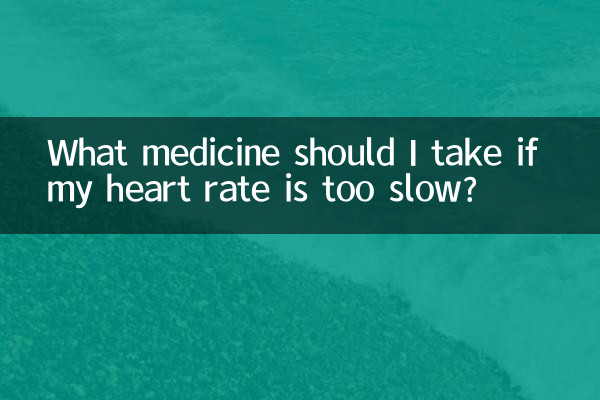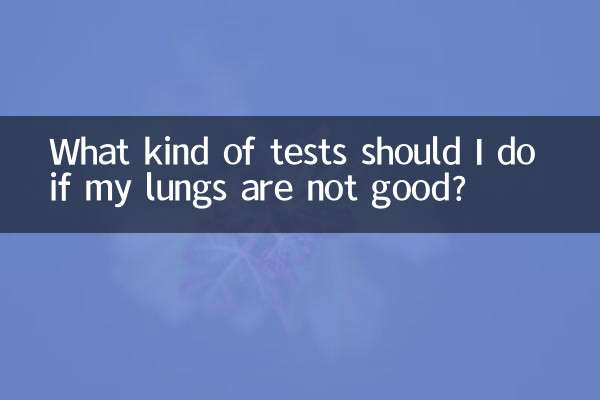What medicine should I take if my heart rate is too slow?
Bradycardia means that the heart beating frequency is lower than the normal range (resting heart rate in adults is lower than 60 beats/minute), which may be caused by physiological factors (such as athlete's heart) or pathological factors (such as sinus node dysfunction, hypothyroidism, etc.). For patients who require medication, doctors usually prescribe targeted medications based on the cause and symptoms. The following is a comprehensive analysis of drug treatment of bradycardia and related hot topics.
1. Common causes and therapeutic drugs of bradycardia

| Cause | Symptoms | Commonly used drugs | Mechanism of action |
|---|---|---|---|
| sinus node dysfunction | Dizziness, fatigue, syncope | Atropine, isoproterenol | Improve sinus node self-discipline and increase heart rate |
| hypothyroidism | Sensitivity to cold, weight gain, fatigue | Levothyroxine Sodium | Supplement thyroid hormone to improve metabolism |
| Medication side effects (such as beta-blockers) | Heart rate continues to be low | Adjust or discontinue original medication | Reduce the inhibitory effect on the heart |
2. Correlation analysis of hot topics on the entire network in the past 10 days
Recently, cardiovascular health-related topics have become more popular on social platforms and news media. The following is some relevant content:
| hot topics | focus of discussion | correlation analysis |
|---|---|---|
| Abnormal heart rate after "Yangkang" | Slow or fast heart rate after COVID-19 infection | Some patients require short-term medication to regulate heart rate |
| Smart bracelet monitors heart rate | Accuracy of home device in detecting bradycardia | Indicates potential problems, but requires hospital diagnosis |
| Heart health for athletes | Long-term training leads to physiological bradycardia | Usually no medication is needed |
3. Precautions for drug treatment
1.Strictly follow medical advice: Medication for bradycardia needs to be selected based on the specific cause. Self-administration of medication may aggravate the condition.
2.Monitor heart rate: Regularly review the electrocardiogram or dynamic electrocardiogram during medication.
3.Be wary of side effects: For example, atropine may cause dry mouth and blurred vision; isoproterenol may cause heart palpitations.
4.lifestyle adjustments: Avoid strenuous exercise and maintain a regular schedule. Some patients need to limit caffeine intake.
4. Treatment of serious cases
For high-risk patients with bradycardia accompanied by syncope or cardiac arrest, the drug may have limited effect and implantation needs to be consideredpacemaker. The following is a reference for indications for pacemaker implantation:
| Indications | clinical standards |
|---|---|
| symptomatic bradycardia | Heart rate <40 beats/min with syncope |
| sinus node dysfunction | Asystole time>3 seconds |
Summary
Medication treatment for bradycardia needs to be individualized and the plan should be formulated based on the cause and the patient's overall condition. Among the recent hot topics, heart rate problems after "Yangkang" and the use of home monitoring equipment deserve attention, but the final treatment still requires the guidance of a professional doctor. If the symptoms are severe, you should seek medical treatment promptly to evaluate whether pacemaker intervention is needed.

check the details

check the details